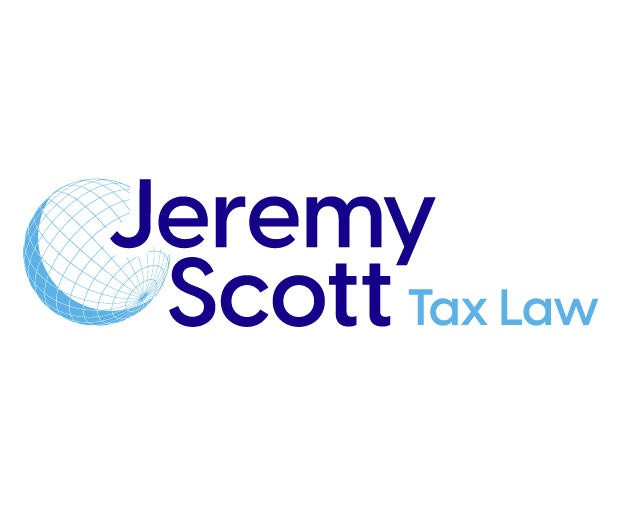Jeremy Scott on Sales Tax Challenges for Businesses
Halifax, CA, Canada - November 28, 2025 / Jeremy Scott Tax Law /
From City Hall to the C-Suite
Jeremy took an unconventional route into the field of tax. After completing a business degree and a law degree at the University of New Brunswick, he began his career in municipal government. It was there that he discovered his true passion lay in tax. This realization led him to a mid-sized accounting firm, where he immersed himself in indirect taxes-navigating the complexities of GST, HST, and provincial sales taxes.
"Most individuals pursue corporate or income tax," Jeremy shares with a chuckle. "But I found myself captivated by sales and commodity taxes. We've always had a bit of an identity crisis-are we sales tax professionals? Commodity tax? Indirect tax? I simply refer to it as sales tax."
This specialized focus proved to be advantageous. Jeremy's knowledge and skills earned him a leadership role at Sobeys, one of Canada's largest grocery chains. For nearly ten years, he oversaw the indirect tax department and subsequently the entire tax function. In that capacity, he managed compliance, risk, and significant acquisitions-including the $6 billion acquisition of Canada Safeway-balancing technical accuracy with practical business needs.
The View from Both Sides of the Desk
After a decade of working in-house, Jeremy transitioned back to consulting, bringing with him a unique perspective-he has experience as both the advisor and the client. He possesses a deep understanding of the technical aspects, as well as insight into how tax policy is implemented within large organizations.
"Writing a technically accurate memo is one thing," he explains. "Ensuring that policy is executed across accounting, operations, and logistics teams is another. Tax doesn't exist in isolation."
How Canada's Sales Tax System Really Works
What makes sales tax in Canada particularly distinctive?
To begin with, Canada features both a national and provincial tax framework. The federal GST (Goods and Services Tax) is applied nationwide at a rate of 5%. Certain provinces-such as Ontario and Nova Scotia-have harmonized their provincial sales tax with the GST, resulting in the HST, a unified VAT (value-added tax) that can reach as high as 15%.
Conversely, provinces like Quebec maintain their own tax systems. Quebec's QST closely resembles the GST but operates independently. Meanwhile, British Columbia, Manitoba, and Saskatchewan each have their own independent PSTs (Provincial Sales Taxes) that function similarly to U.S. state sales taxes.
"Every province has its own peculiarities," Jeremy points out. "When operating across borders, particularly in provinces with their own PSTs, you must relearn the rules each time."
The "Netflix Tax" and the Digital Shift
In recent years, Canada has implemented what is colloquially known as the "Netflix tax"-a streamlined registration process for non-resident digital service providers, including streaming platforms, e-commerce vendors, or SaaS companies that serve Canadian customers without a physical presence.
"We transitioned from asking, 'Are you conducting business in Canada?' to 'Are you making digital sales to Canadian consumers?'" Jeremy clarifies.
If a company does not have a physical presence in Canada but exceeds approximately $30,000 in annual sales to Canadian customers, it may be required to register and collect GST, HST, or the provincial equivalent.
The Import Puzzle: Tax at the Border
A common surprise for businesses operating in Canada is the GST applied to imports.
When goods enter the country, a 5% GST is levied by the Canada Border Services Agency (CBSA). Many companies overlook this detail, often unaware that it is a recoverable tax, meaning they can reclaim it later.
"I've encountered numerous clients who don't even realize they've paid GST at the border," Jeremy states. "It's often buried in their import documentation or broker fees. However, it's money they can frequently recover."
Structuring Smart - and Staying Out of Trouble
For non-resident firms, becoming entangled in Canada's tax framework isn't always unavoidable. With appropriate transaction structuring, organizations can sometimes reduce their tax exposure.
"You can design your transactions so that they occur outside of Canada," he notes. "In those scenarios, the Canadian customer becomes the importer of record and is responsible for all taxes. But this must be planned intentionally."
Why Compliance Starts with Communication
When discussing goods that get delayed at the border, Jeremy chuckled-not because it's amusing, but because it's often preventable. The primary culprit? Poor paperwork.
Incorrect HS codes, incomplete declarations, or mismatched importer information are the leading causes of border delays. "It's not always a tax-related issue," he explains. "Sometimes it's simply customs. Regardless, better coordination among logistics, tax, and operations can avert many headaches."
Bringing It All Together
Navigating Canada's intricate sales tax landscape can be challenging-but it is not insurmountable. Businesses that invest time in comprehending how the GST, HST, and PST systems interact can discover efficiencies and mitigate unnecessary risks.
"Whether you're a local entity or an international player, the essential factor is aligning your tax strategy with your business objectives," Jeremy advises. "When you assess tax through that perspective, it shifts from being merely a compliance issue to a more strategic consideration."
In conclusion, navigating Canada's complex sales tax system can be a challenging endeavor for businesses. However, with the right knowledge and resources, companies can successfully manage their sales tax compliance and minimize the risk of tax audits. Tax lawyer Jeremy Scott's insights serve as a valuable reminder of the importance of understanding sales tax regulations, maintaining accurate records, and seeking professional guidance when needed. By taking these steps, businesses can ensure they remain compliant and avoid the pitfalls that often accompany sales tax obligations in Canada.
To learn more about aligning your tax strategies with business growth, visit https://jeremyscott.ca/

Contact Information:
Jeremy Scott Tax Law
168 Hobsons Lake Drive, Suite 301
Halifax, CA, Nova Scotia B3S 0G4
Canada
Jeremy Scott
+1 902-493-7201
https://jeremyscott.ca

